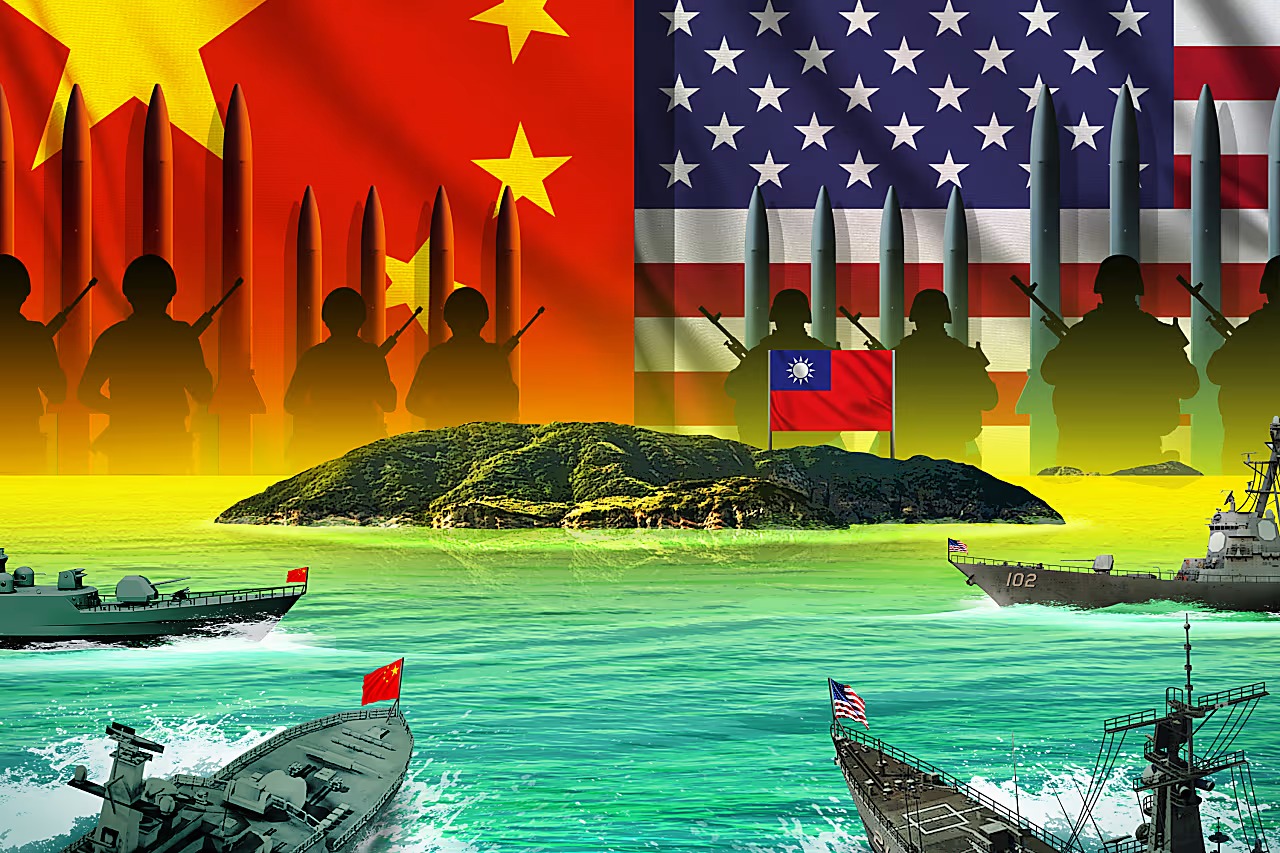Tensions between the U.S. and China over Taiwan have escalated into one of the most dangerous geopolitical flashpoints in the world today. Taiwan, a democratically governed island that China claims as its own, sits at the heart of an intensifying rivalry between two global superpowers. China’s aggressive military actions, including frequent air incursions and naval exercises around Taiwan, signal its determination to reunify the island-by force if necessary. Meanwhile, the U.S. has ramped up support for Taiwan through arms sales and diplomatic engagements, reinforcing its longstanding “One China” policy with a firm commitment to Taiwan’s defence. This precarious balance has significant global implications. Taiwan is a major player in the global semiconductor industry, producing a substantial portion of the world’s most advanced chips. Any conflict in the Taiwan Strait could disrupt global supply chains, leading to severe economic fallout. Additionally, the U.S.-China standoff over Taiwan has broader implications for regional security, drawing in countries like Japan and Australia, who see stability in the Indo-Pacific as vital to their national interests. The situation also raises critical questions about sovereignty, self-determination, and international law. While China asserts its right to reclaim Taiwan as part of its territory, Taiwan’s people overwhelmingly support maintaining their de facto independence. The U.S. walks a fine line, supporting Taiwan’s democracy without officially recognising its independence-a delicate act of diplomatic tightrope walking that grows more difficult as China’s ambitions rise.
As both nations increase their military presence in the region, the world watches closely, aware that any miscalculation could ignite a conflict with far-reaching consequences for global stability and the future of international diplomacy.
Author: Ms. Hiya Sharma, student Geneva School of Diplomacy and International Relations
Disclaimer – The views and opinions expressed in the commentaries/blogs/articles are those of the authors and do not necessarily reflect the official policy or position of the Forum for Global Studies.

